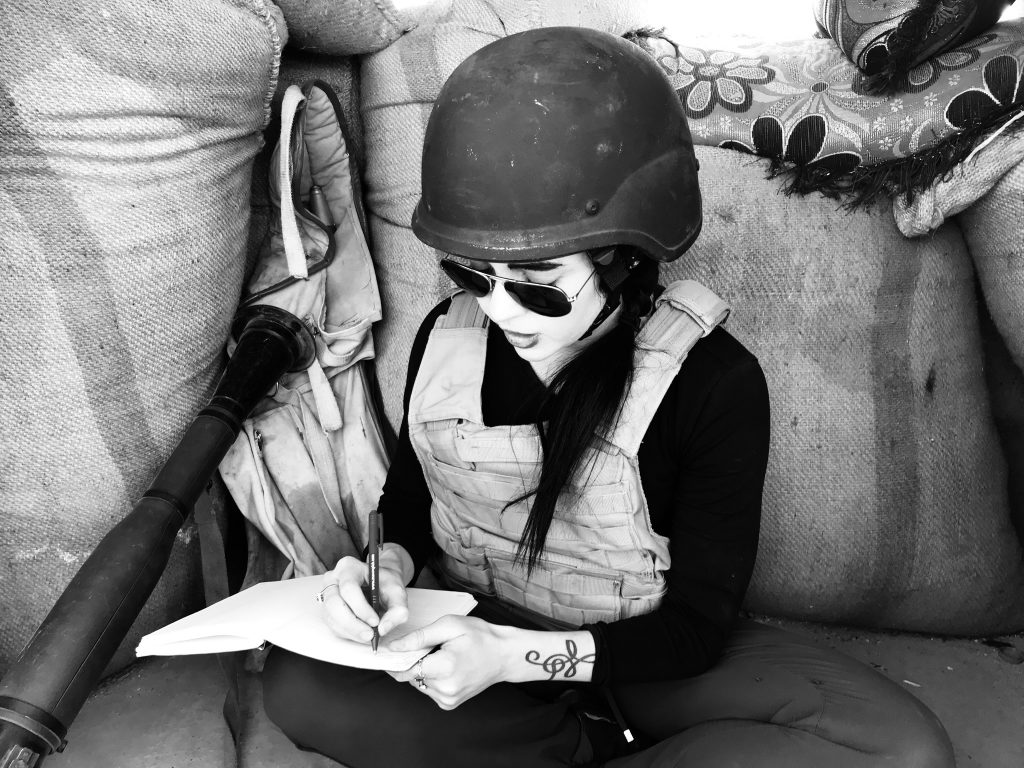
In addition to being a human rights and investigative reporter and writer in conflict zones across the world, Hollie is a skilled foreign policy analyst with an expertise in strategic communications and using public speaking and lectures to help shed light on important stories.
Some of the key talking points Hollie can discuss with great expertise (but aren’t limited to) the below:
The Art of Storytelling in Hostile Environments
Getting to the truth, and shining a light in some of the darkest corners of the globe, is far from a straight-forward task, especially when faced with hostile governments, insurgents and powerful players who will stop at nothing from squashing the truth. But it can and must be done, both now and in the future.
On Investigating War Crimes and Accountability
Over and over again, we hear and often even see unfathomable crimes being committed by governments, gangsters, warlords and terrorists against those simply caught in the crossfire of conflict. Who is holding the perpetrators accountable? Why are so many mass murderers and rapists getting away with their crimes in the context of wartime? More must be done.
How Terrorists Think and Operate: Interviewing ISIS
Having spent years interviewing terrorists from various factions, all over the world and with different ranks and responsibilities, Hollie can offer an unprecedented insight into what makes them tick, what they really want, and why they do what they do.
Women in War: Vignettes From All Sides
Women are playing an increasingly prominent role in today’s wars, and on all sides of the spectrum. We are seeing more female jihadists, more female fighters, more foreign terrorist wives and more females fighting for what’s right and playing visible roles in conflict resolution. Women, like never before, are crucial to preventing future conflict.
Sexual Violence During Wartime
Violence against women and men, especially rape, has added its own brand of shame to recent wars. From conflicts in Bosnia and Herzegovina to Peru to Rwanda, girls and women have been singled out for rape, imprisonment, torture and execution, as documented by the United Nations. Systematic rape is often used as a weapon of war in ‘ethnic cleansing’.
This somewhat silent epidemic has gone on for too long, and for too long the victims are made to wear the burden of shame while the perpetrators walk free. Ending this epidemic is vital, and there are steps that can and should be put in place.
Resolution and the Future of Conflict
With more than sixty million people displaced from their homes and a world in disarray akin to that of World War II times, it is hard not to fling our arms in the air and back away from the world. But isolation is not the only answer, there are solutions and we need to work together with a greater focus on prevention rather than containment, to bring the world’s many wars back to balance.
